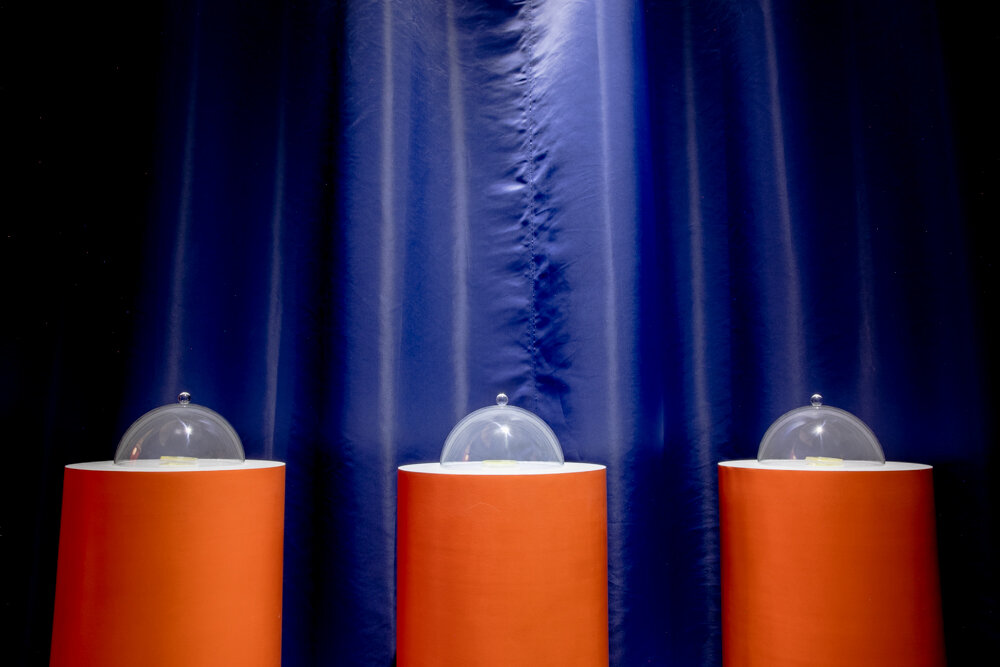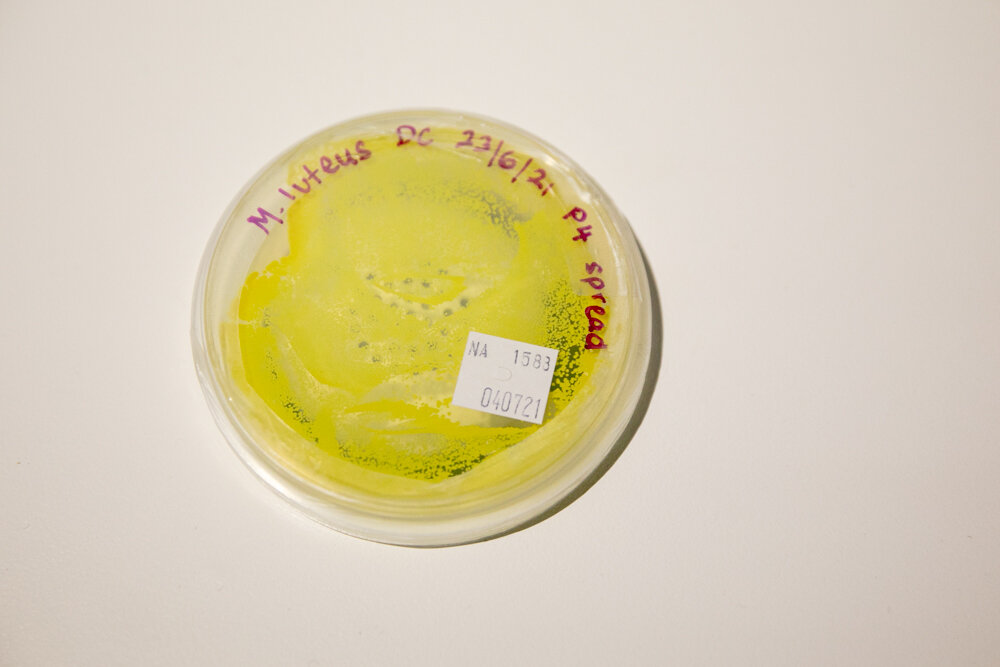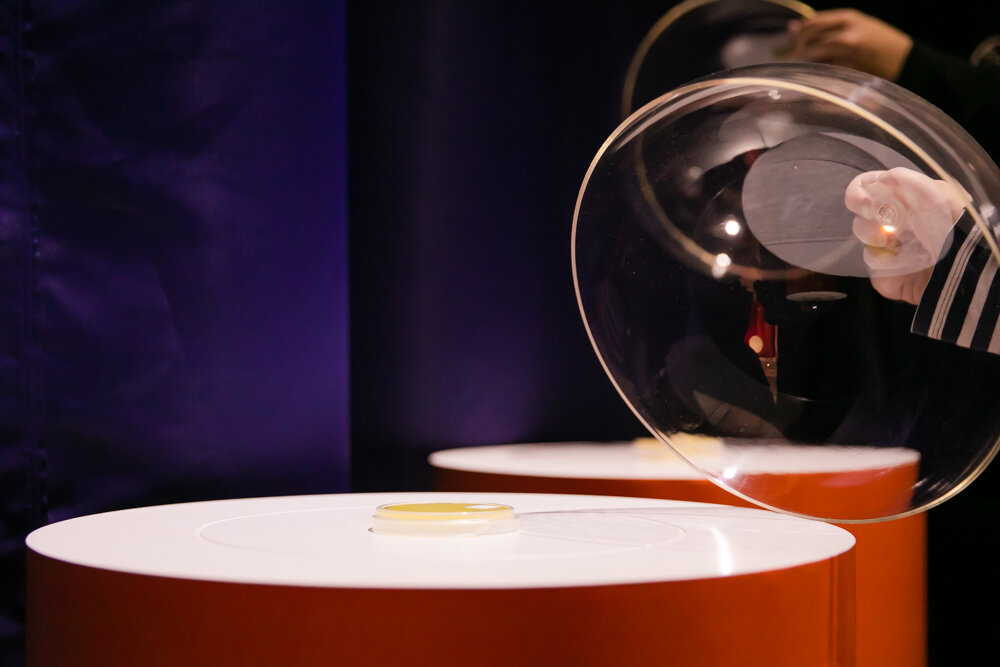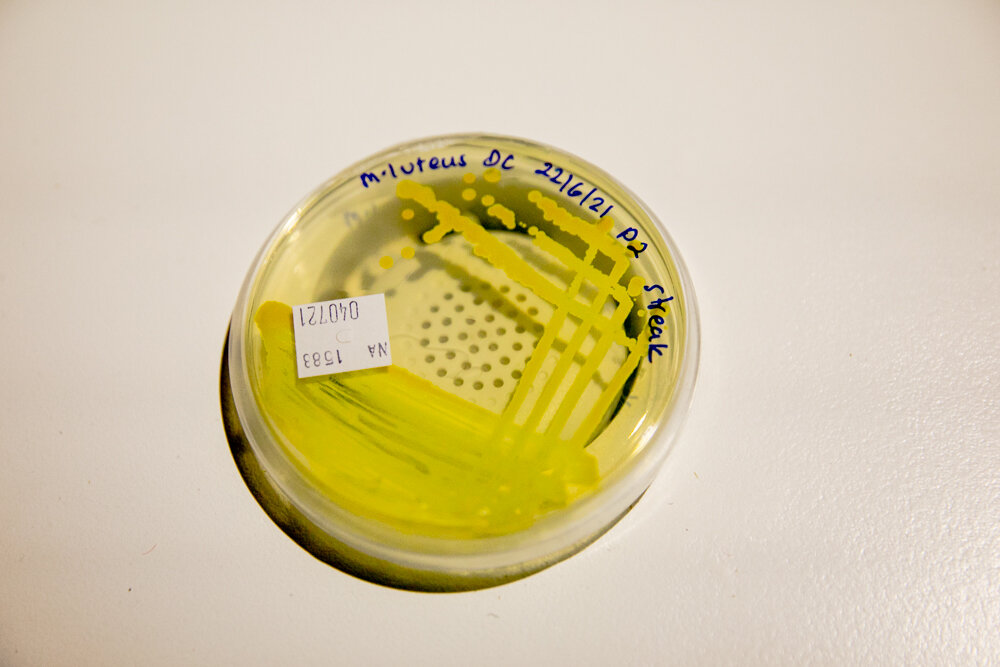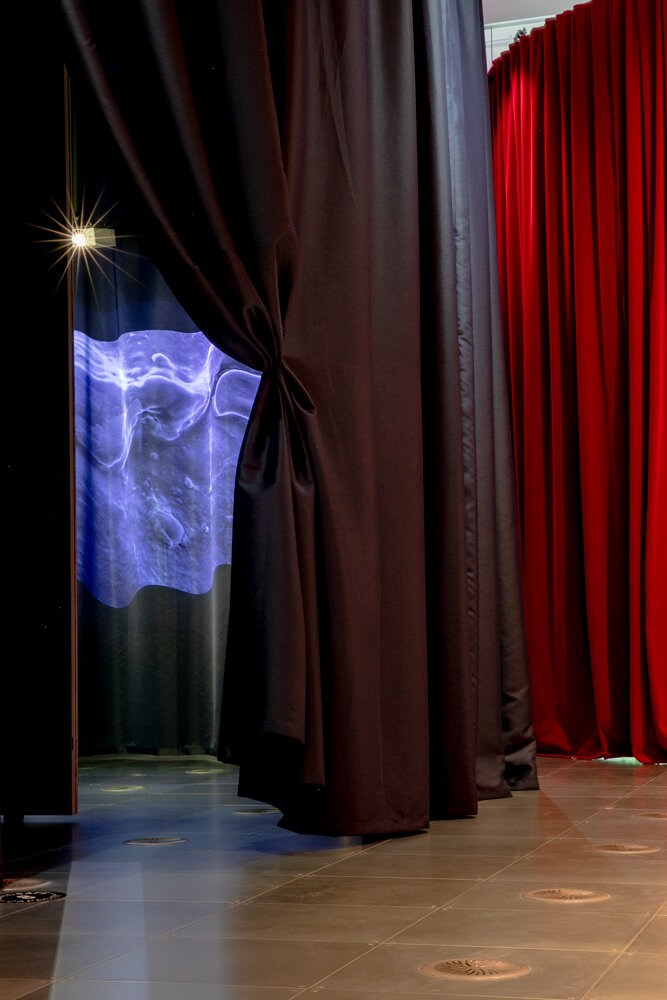Microbial Mood
Sophia Charuhas
Could your microbiome change your mind and mood?
This work explores how we think about mental health through a speculative experiment. It starts with the bacterial treatment room, where two petri dishes of microbial friends “listen” to different sounds, and another one has no music (the control). Does different music change their growth? This is a live experiment, speculating on recent research that suggests we may improve mental health by encouraging the growth of certain bacteria in our bodies combined with the gut-brain connection. One day soon could we treat ourselves with music to encourage our gut bacteria growth? Step into these speculative treatment rooms to find out.
Can music be used to treat your mental health?
Sophia Charuhas has a passion for biology and fine art and has recently immersed herself in the world of bioart. Taking an interest in the human microbiome and how it influences mood and behaviour, Sophia works with living organisms as the medium of her artwork. Most recently, she has been researching how sound frequencies may affect bacterial growth, and if this may be used clinically. She has previously conducted research into the field of bioart, asking how bio artists could be shaping the future of biotechnology. Sophia has since graduated from Liverpool John Moores University and now works as a medical writer.
This work was originally developed in collaboration with Dr Glyn Hobbs, Dr Kathryn Smith, Mark Roughley and Dr Andrew Leach.
The microorganisms in Science Gallery were chosen, cultivated and cared for by Dr Samantha Byrne and Connagh Redmond.

